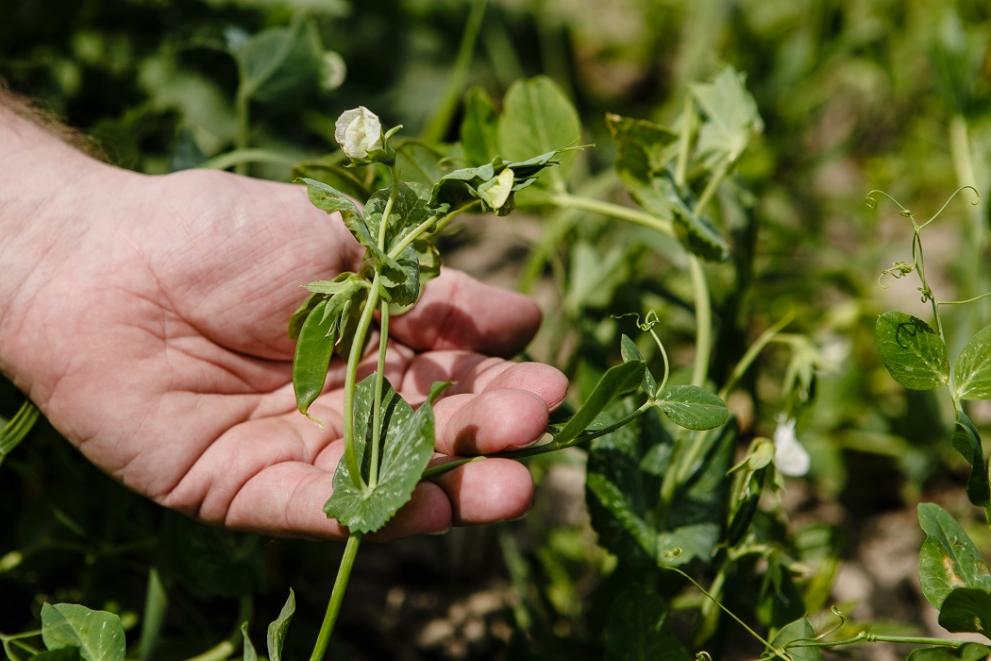
Its overall aim is to boost the production and consumption of organic products, to reach 25% of agricultural land under organic farming by 2030, as well as to increase organic aquaculture significantly. Currently, less than 2% of farmland in Ireland is devoted to organic farming.
Organic production comes with a number of important benefits: organic fields have around 30% more biodiversity, organically farmed animals enjoy a higher degree of animal welfare and take less antibiotics, organic farmers have higher incomes and are more resilient, and consumers know exactly what they are getting thanks to the EU organic logo. The Action Plan is in line with the European Green Deal and the Farm to Fork and Biodiversity Strategies.
The Action Plan is designed to provide the already fast growing organic sector the right tools to achieve the 25% target. It puts forward 23 actions structured around 3 axes – boosting consumption, increasing production, and further improving the sustainability of the sector – to ensure a balanced growth of the sector.
The Commission encourages Member States to develop national organic action plans to increase their national share of organic farming. There are significant differences between Member States regarding the share of agricultural land currently under organic farming, ranging from 0.5% to over 25%. The national organic action plans will complement the national CAP strategic plans (link is external), by setting out measures that go beyond agriculture and what is offered under the CAP.
Promote consumption
Growing consumption of organic products will be crucial to encourage farmers to convert to organic farming and thus increase their profitability and resilience. To this end, the Action Plan puts forward several concrete actions aimed at boosting demand, maintaining consumer trust and bringing organic food closer to citizens.
This includes: informing and communicating about organic production, promoting the consumption of organic products, stimulating a greater use of organics in public canteens through public procurement and increasing the distribution of organic products under the EU school scheme (link is external). Actions also aim, for example, at preventing fraud, increasing consumers' trust and improving traceability of organic products. The private sector can also play a significant role by, for example, rewarding employees with ‘bio-cheques' they can use to purchase organic food.
Increase production
Presently, about 8.5% of EU's agricultural area is farmed organically, and the trends show that with the present growth rate, the EU will reach 15-18% by 2030. This Action Plan provides the toolkit to make an extra push and reach 25%. While the Action Plan largely focuses on the “pull effect” of the demand side, the Common Agricultural Policy will remain a key tool for supporting the conversion. Currently, around 1.8% (€7.5 billion) of CAP is used to support organic farming. The future CAP (link is external) will include eco-schemes which will be backed by a budget of €38 – 58 billion, for the period 2023 – 2027, depending on the outcome of the CAP negotiations. The eco-schemes can be deployed to boost organic farming.
Beyond the CAP, key tools include organisation of information events and networking for sharing best practices, certification for groups of farmers rather than for individuals, research and innovation, use of blockchain and other technologies to improve traceability increasing market transparency, reinforcing local and small-scale processing, supporting the organisation of the food chain and improving animal nutrition.
To raise awareness on organic production, the Commission will organise an annual EU ‘Organic day' as well as awards in the organic food chain, to recognise excellence at all steps of the organic food chain. The Commission will also encourage the development of organic tourism networks through ‘biodistricts'. 'Biodistricts' are areas where farmers, citizens, tourist operators, associations and public authorities work together towards the sustainable management of local resources, based on organic principles and practices.
The Action Plan also notes that organic aquaculture production remains a relatively new sector but has a significant potential for growth. The upcoming new EU guidelines on the sustainable development of EU aquaculture, will encourage Member States and stakeholders to support the increase in organic production in this sector.
Improve sustainability
Finally, it also aims to further improve organic farming's performance in terms of sustainability. To achieve this, actions will focus on improving animal welfare, ensuring the availability of organic seeds, reducing the sector's carbon footprint, and minimising the use of plastics, water and energy.
The Commission also intends to increase the share of research and innovation (R&I) and dedicate at least 30% of the budget for research and innovation actions in the field of agriculture, forestry and rural areas to topics specific to or relevant for the organic sector.
The Commission will closely monitor progress through a yearly follow-up with representatives of the European Parliament, Member States and stakeholders, through bi-annual progress reports and a mid-term review.
Details
- Publication date
- 25 March 2021
